As mentioned in the previous post, we had the privilege of coming to New Orleans this past weekend for two events – #DData16 and the American Diabetes Association Scientific Sessions (#2016ADA). A few things stuck out, which I wanted to highlight here.
At #DData16:
- The focus was on artificial pancreas, and there was a great panel moderated by Howard Look with several of the AP makers. I was struck by how many of them referenced or made mention of #OpenAPS or the DIY/#WeAreNotWaiting movement, and the need for industry to collaborate with the DIY community (yes).
- I was also floored when someone from Dexcom referenced having read one of my older blog posts that mentioned a question of why ??? was displayed to me instead of the information about what was actually going on with my sensor. It was a great reminder to me of how important it is for us to speak up and keep sharing our experiences and help device manufacturers know what we need for current and future products, the ones we use every day to help keep us alive.
- Mark Wilson gave a PHENOMENAL presentation, using a great analogy about driving and accessing the dashboard to help people understand why people with diabetes might choose to DIY. He also talked about his experiences with #OpenAPS, and I highly recommend watching it. (Kudos to Wes for livestreaming it and making it broadly available to all – watch it here!) I’ve mentioned Mark & his DIY-ing here before, especially because one of his creations (the Urchin watchface) is one of my favorite ways to help me view my data, my way.
- Howard DM’ed me in the middle of the day to ask if I minded going up as part of the patient panel of people with AP experiences. I wasn’t sure what the topic was, but the questions allowed us to talk about our experiences with AP (and in my case, I’ve been using a hybrid closed loop for something like 557 or so days at this point). I made several points about the need for a “plug n play” system, with modularity so I can choose the best pump, sensor, and algorithm for me – which may or may not be made all by the same company. (This is also FDA’s vision for the future, and Dr. Courtney Lias both gave a good presentation on this topic and was engaged in the event’s conversation all day!).
At #2016ADA:
- There needs to be a patient research access program developed (not just by the American Diabetes Association for their future Scientific Sessions meetings, but at all scientific and academic conferences). Technology has enabled patients to make significant contributions to the medical and scientific fields, and cost and access are huge barriers to preventing this knowledge from scaling. At #2016ADA, “patient” is not even an option on the back of the registration form. Scott and I are privileged that we could potentially pay for this, but we don’t think we should have to pay ($410 for a day pass or $900 for a weekend pass) so much when we are not backed by industry or an academic organization of any sort. (As a side note, a big thank you to the many people who have a) engaged in discussion around this topic b) helped reach out to contacts at ADA to discuss this topic and c) asked about ways to contribute to the cost of us presenting this research this weekend.)
- We presented research from 18 of the first 40 users of #OpenAPS. You can find the FULL CONTENT of our findings and the research poster content in this post on OpenAPS.org. We specifically posted our content online (and tweeted it out – see this thread) for a few reasons:
- First, everything about #OpenAPS is open source. The content of our poster or any presentation is similarly open source.
- Not everyone had time to come by the poster.
- Not everyone has the privilege or funds to attend #2016ADA, and there’s no reason not to share this content online, especially when we will likely get more knowledge sharing as a result of doing so.
- With the above in mind, we encouraged people stopping by to take whatever photos of our poster that they wanted, and told them about the content being posted online. (And in fact, in addition to the blog post about the poster, that information is now on the “Outcomes” page on OpenAPS.org.)
- Frustratingly, some people were asked to take down posted photos of our poster. If anyone received such a note, please feel free to pass on my tweet that you have authorization by the authors to have taken/used the photo. This is another area (like the need to develop patient research access programs) that needs to be figured out by scientific/academic conferences – presenters/authors should be able to specifically allow sharing and dissemination of information that they are presenting.
- Speaking of photos, I was surprised that around half a dozen clinicians (HCPs) stopped by and made mention of having used the picture of the #OpenAPS rig and the story of #OpenAPS in one of their presentations! I am thrilled this story is spreading, and being spread even by people we haven’t had direct contact with previously! (Feel free to use this photo in presentations, too, although I’d love to hear about your presentation and see a copy of it!)
- We had many amazing conversations during the poster session on Sunday. It was scheduled for two hours (12-2pm), but we ended up being there around four hours and had hundreds of fantastic dialogues. Here were some of the most common themes of conversation:
- Why are patients doing this?
- Here’s my why: I originally needed louder alarms, built a smart alarm system that had predictive alerts and turned into an open loop system, and ultimately realized I could close the loop.
- What can we learn from the people who are DIY-ing?
- One of my favorite topics, and what I was hoping would be a big part of the conversation.
- How can we further study the DIY closed loop community?
- This is my second favorite topic, which touches on a few things – 1) the plan to do a follow up study of the larger cohort (since we now have (n=1)*84 loopers) with a full retrospective analysis of the data rather than just self-reported outcomes, as this study used; 2) ideas around doing a comparison study between one or more of the #OpenAPS algorithms and some of the commercial or academic algorithms; 3) ideas to use some of the #OpenAPS-developed tools (like a basal tuning tool that we are planning to build) in a clinical trial to help HCPs help patients adjust more quickly and easily to pump therapy.
- What other pumps will work with this? How can there be more access to this type of DIY technology?
- We utilize older pumps that allow us to send temp basal commands; we would love to use a more modern pump that’s able to be purchased on the market today, and had several conversations with device manufacturers about how that might be possible; we’ll continue to have these conversations until it becomes a reality.
- Why are patients doing this?
- There is some great coverage coming of the poster & the #OpenAPS community, and I’ll post links here as I see them come out. For starters, Dave deBronkart did a 22 minute interview with Scott & I, which you can see here. DiabetesMine also included mention of the #OpenAPS poster in their conference roundup. And diaTribe wrote up the the poster as a “new now next”! Plus, WebMD wrote an article on #OpenAPS and the poster as well.
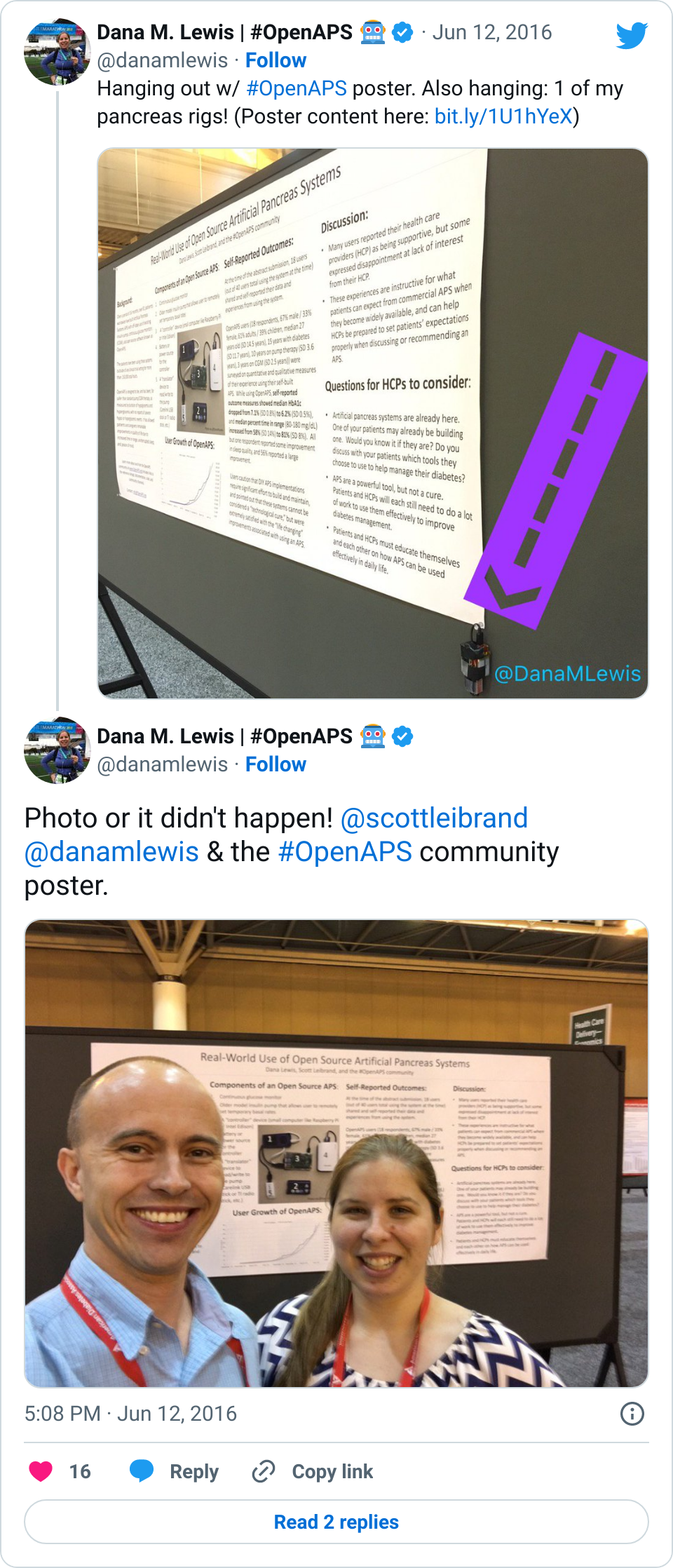
Scott and I walked away from this weekend with energy for new collaborations (and new contacts for clinical trial and retrospective analysis partnerships) and several ideas for the next phase of studies that we want to plan in partnership with the #OpenAPS community. (We were blown away to discover that OpenAPS advanced meal assist algorithm is considered by some experts to be one of the most advanced and aggressive algorithms in existence for managing post-meal BG, and may be more advanced than anything that has yet been tested in clinical trials.) Stay tuned for more!
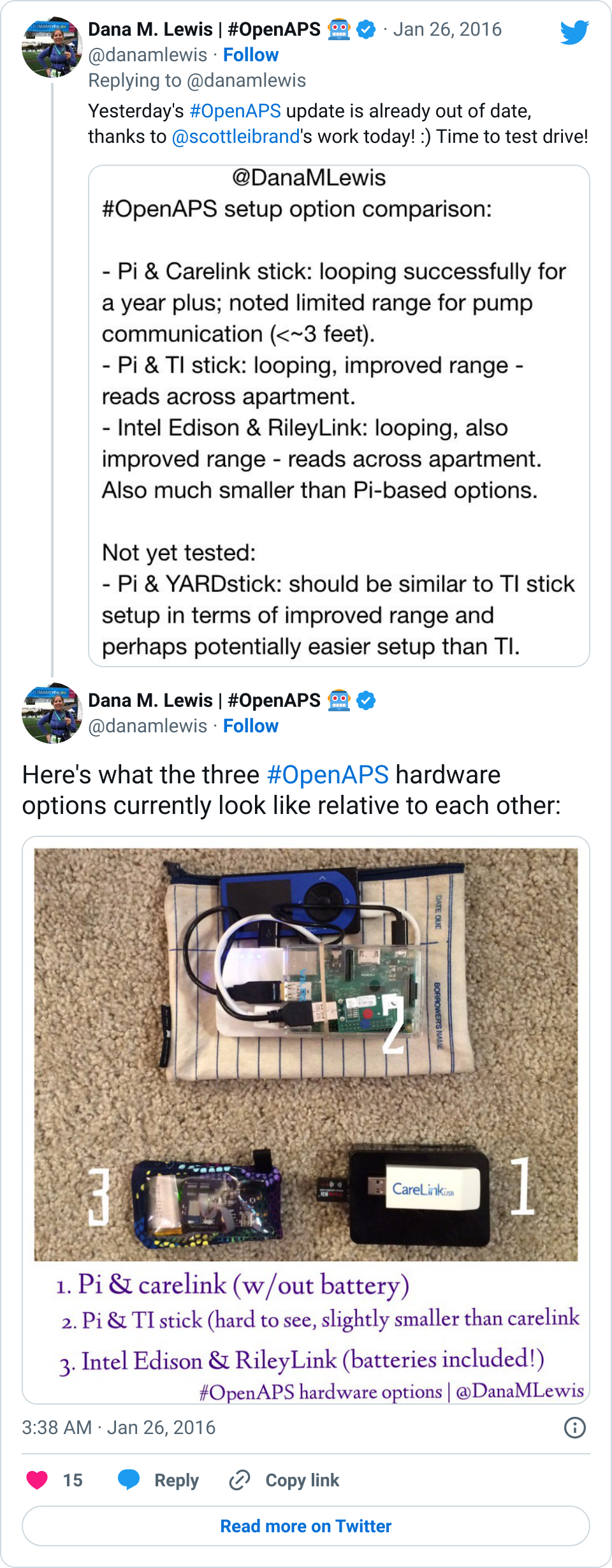
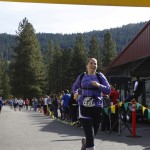
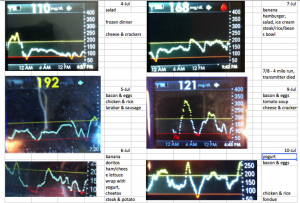
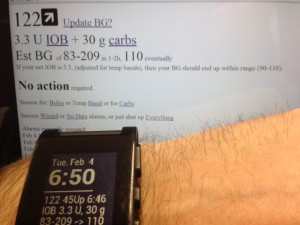
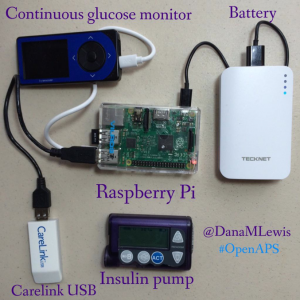

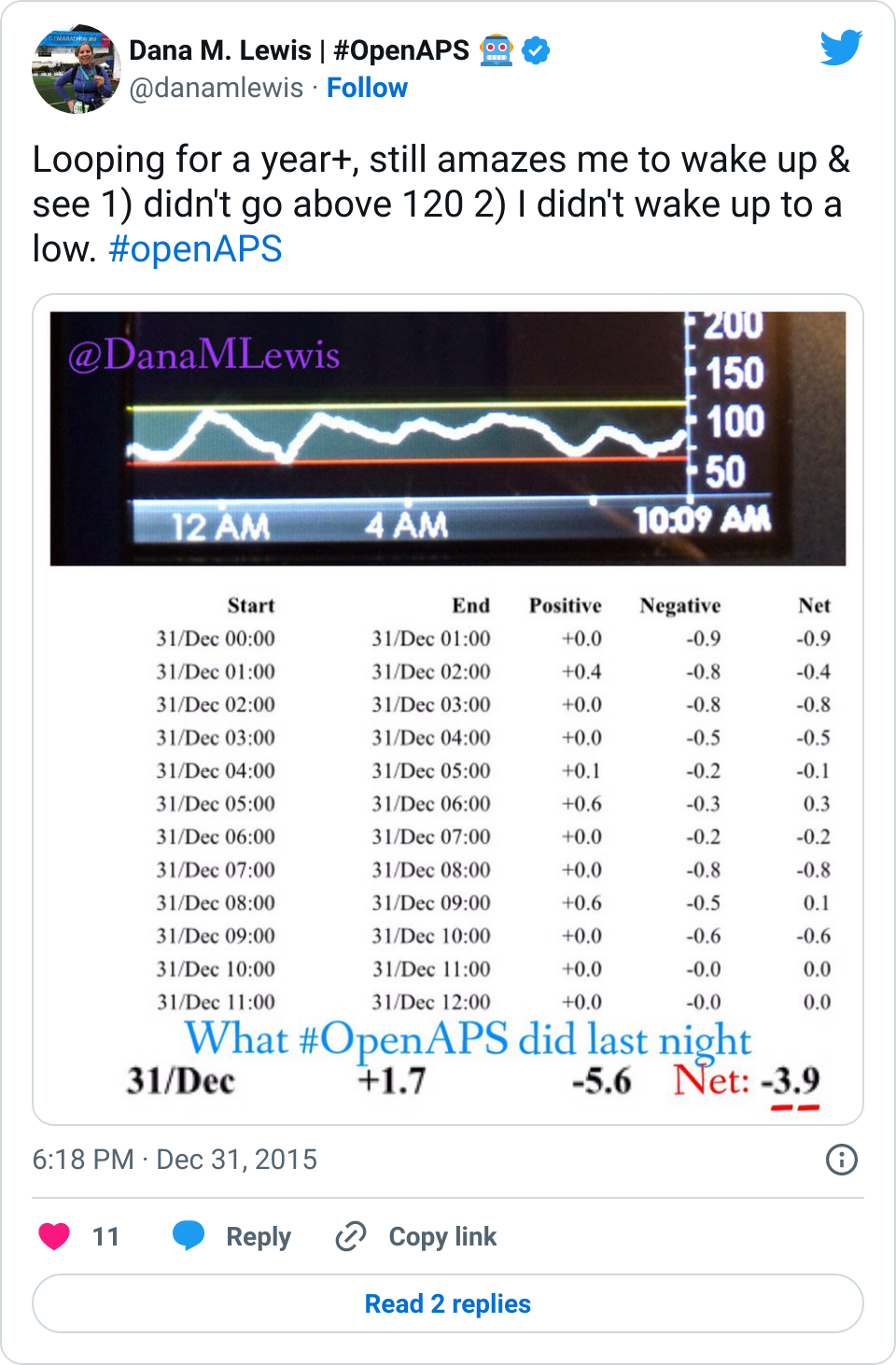
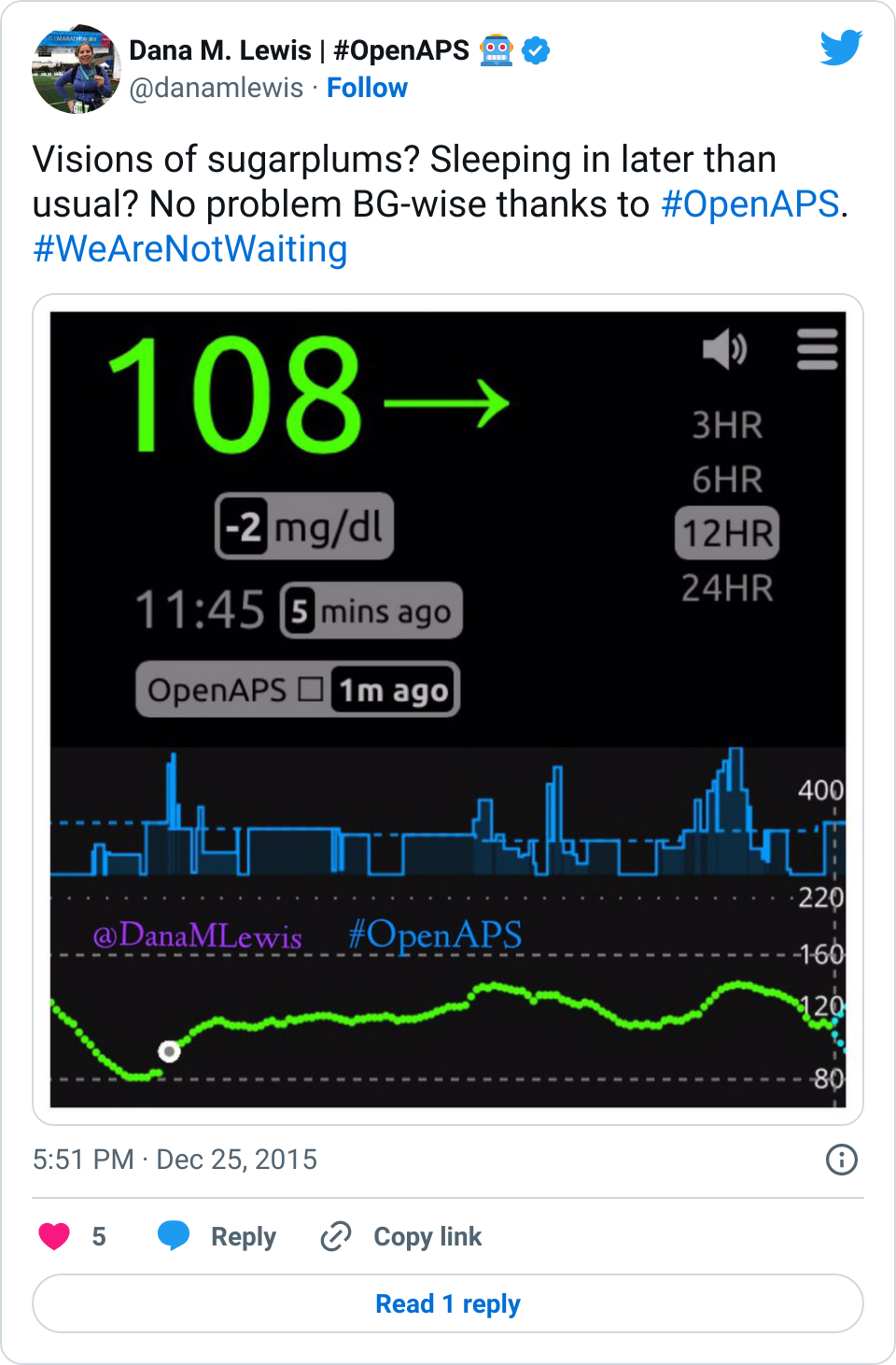
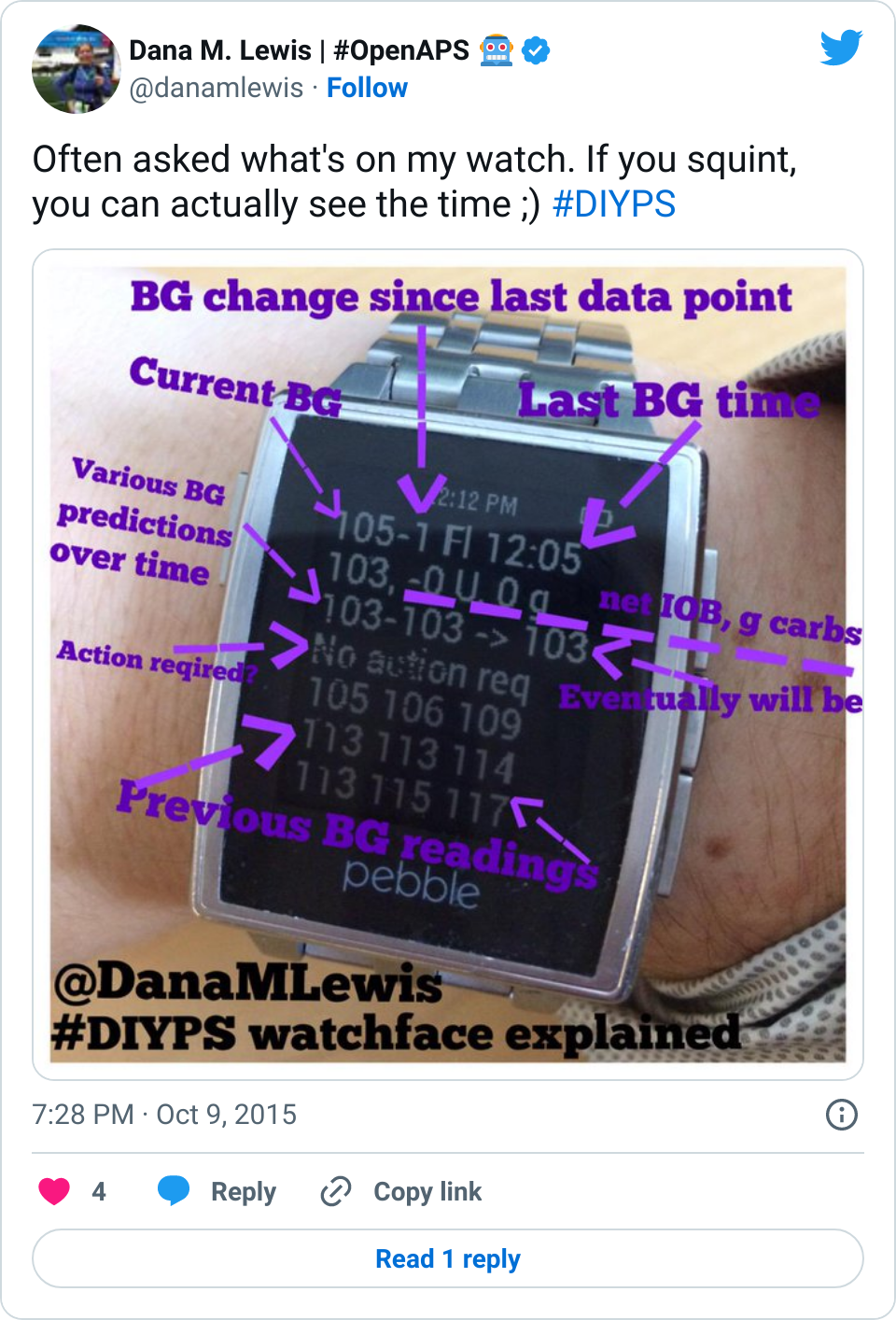
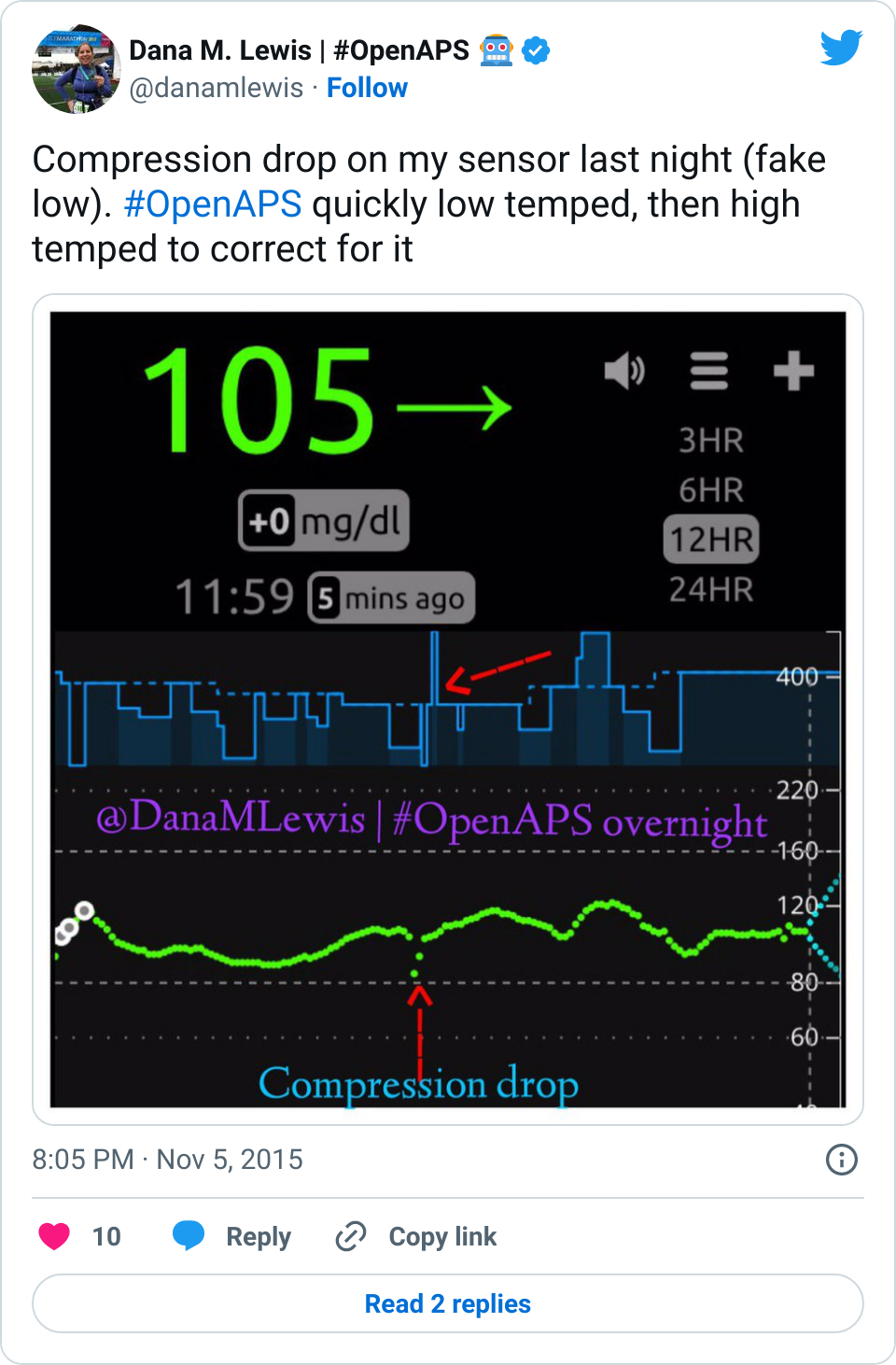
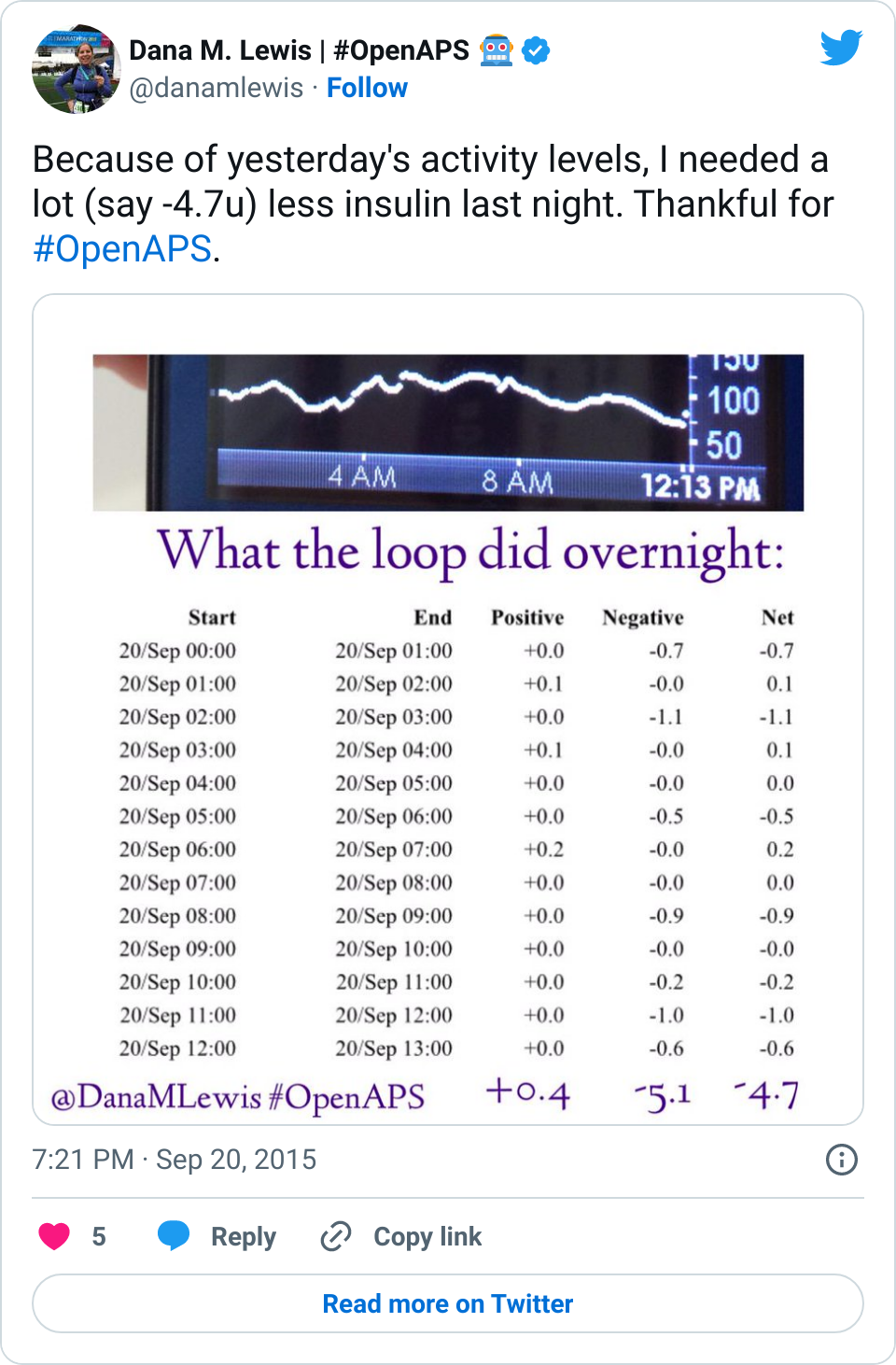
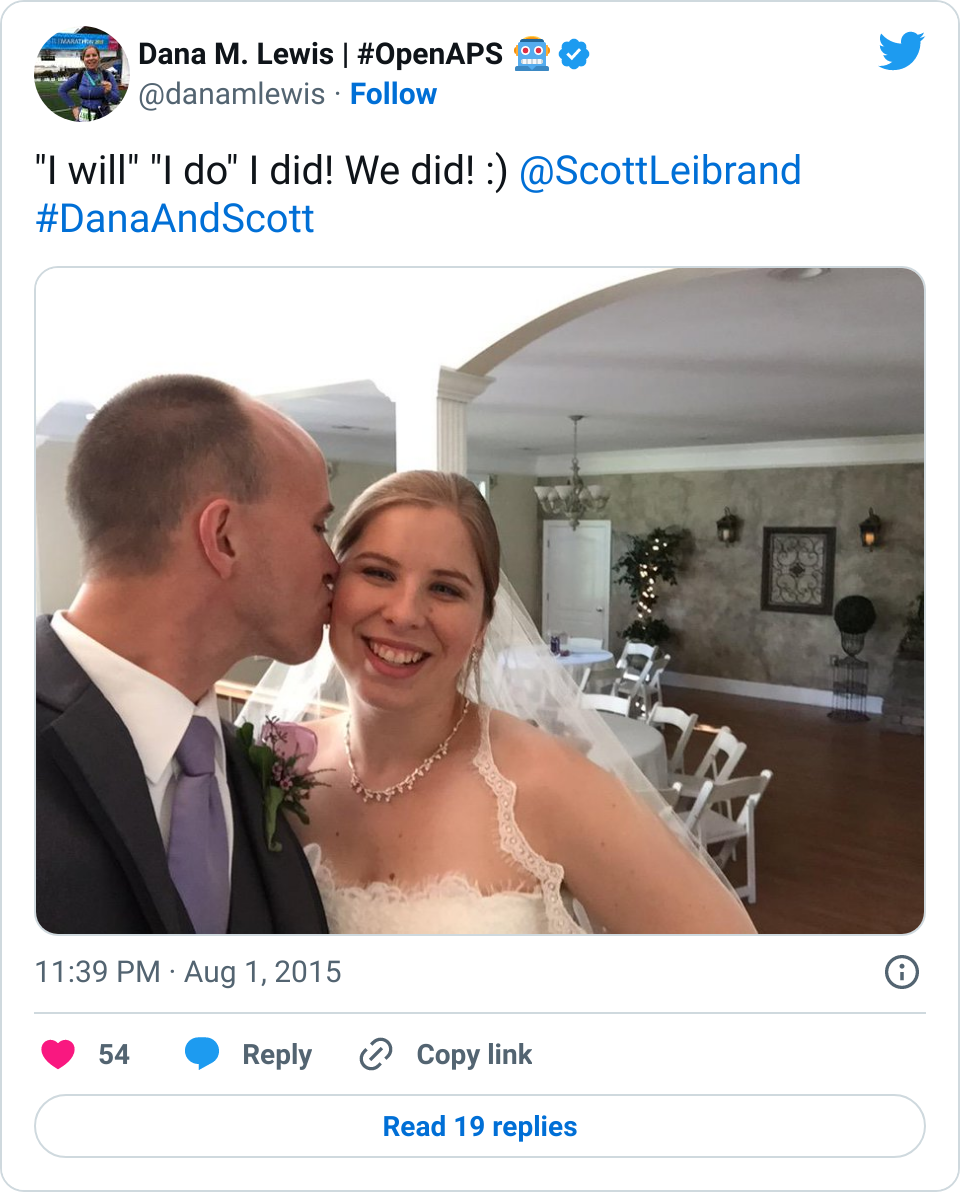
Recent Comments